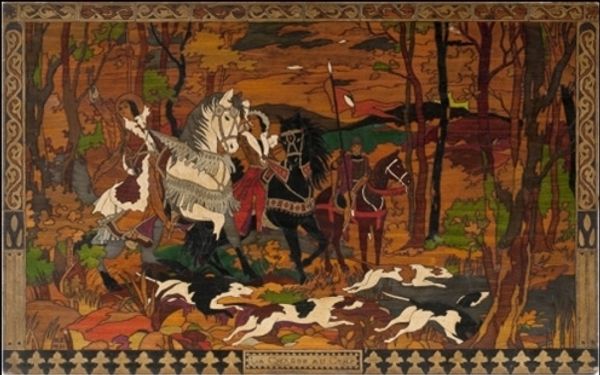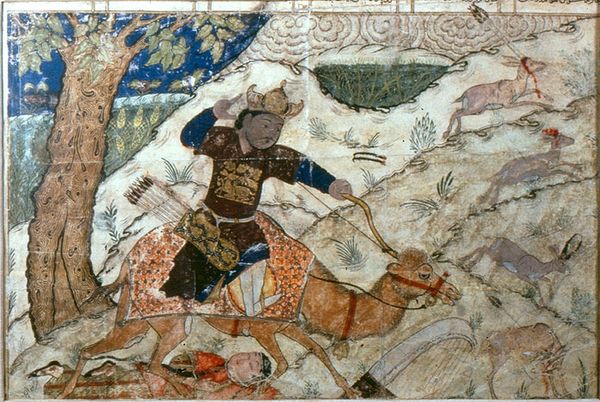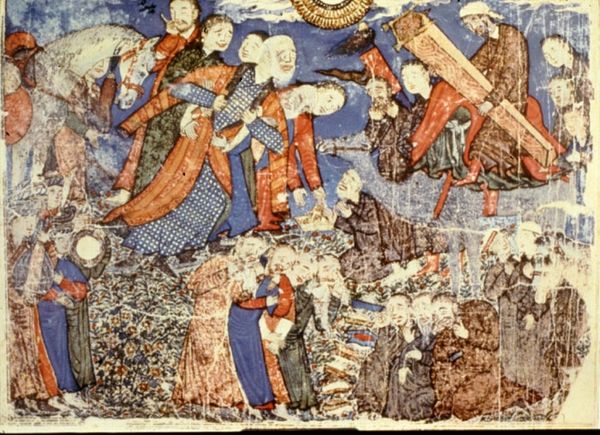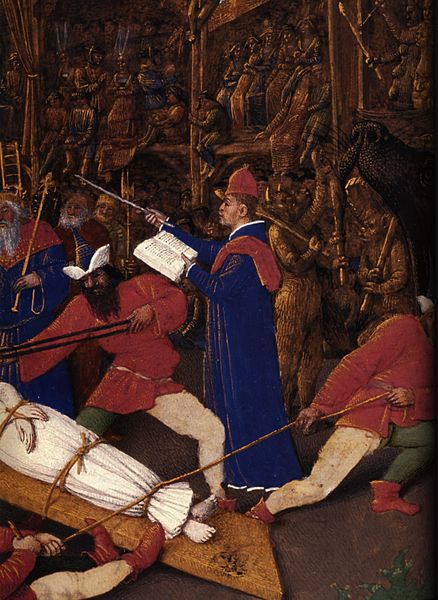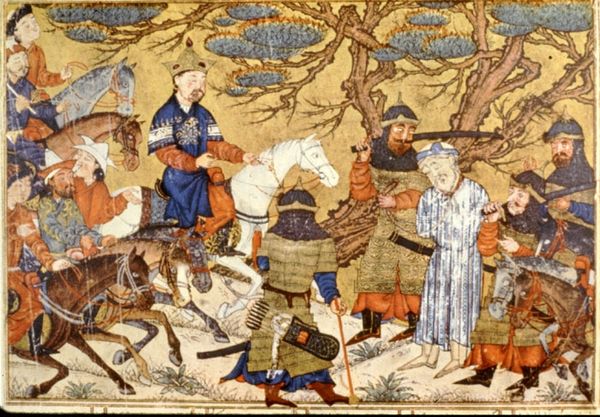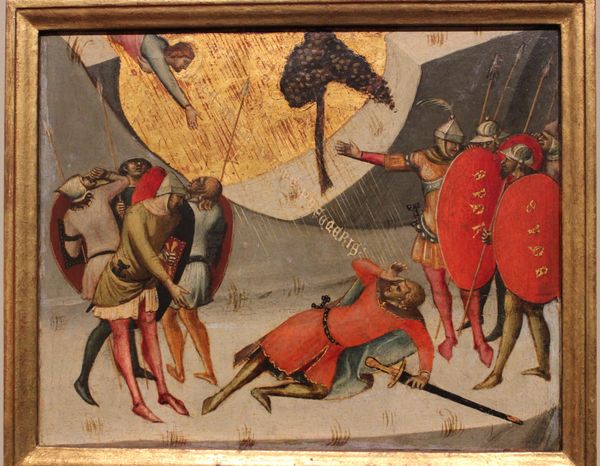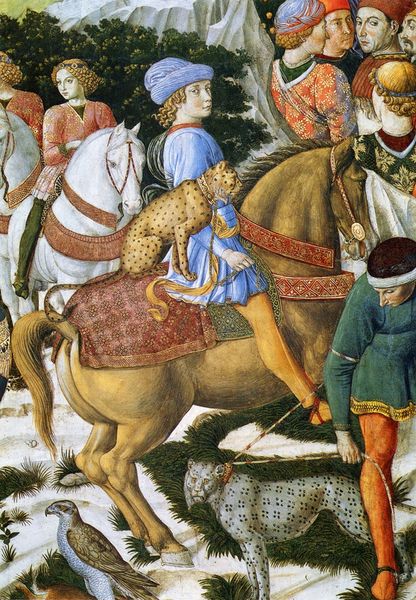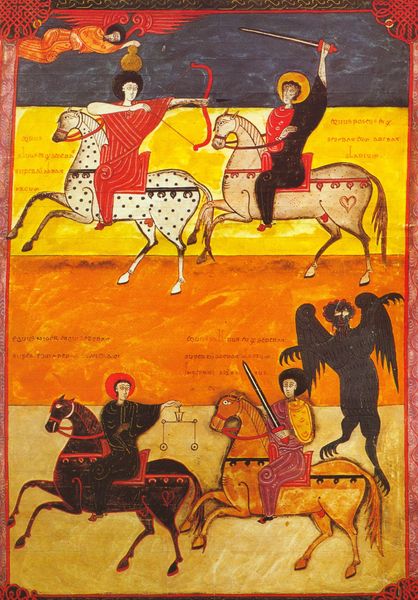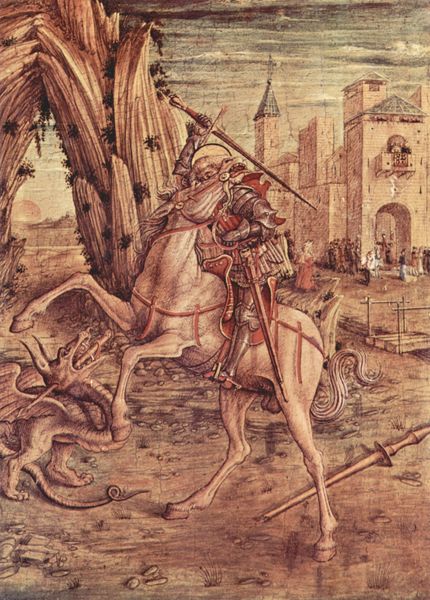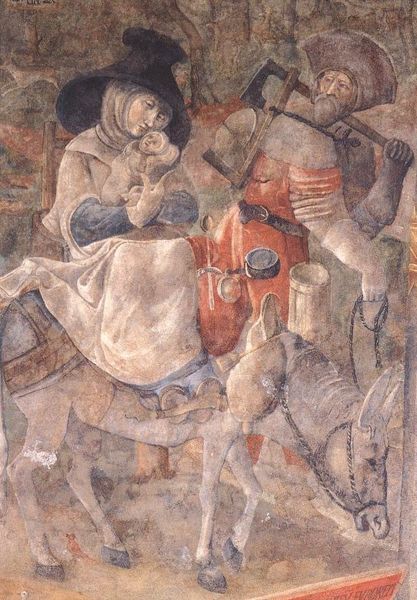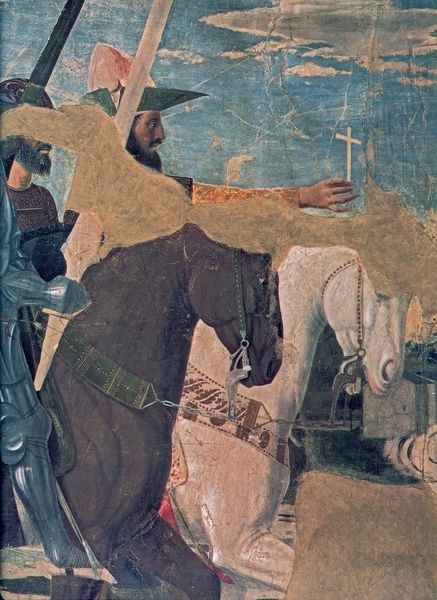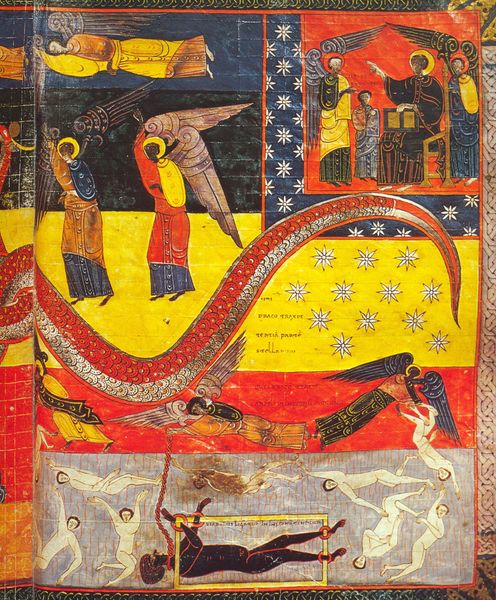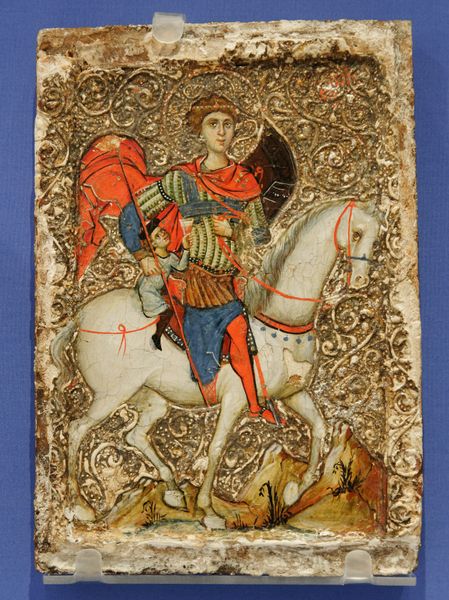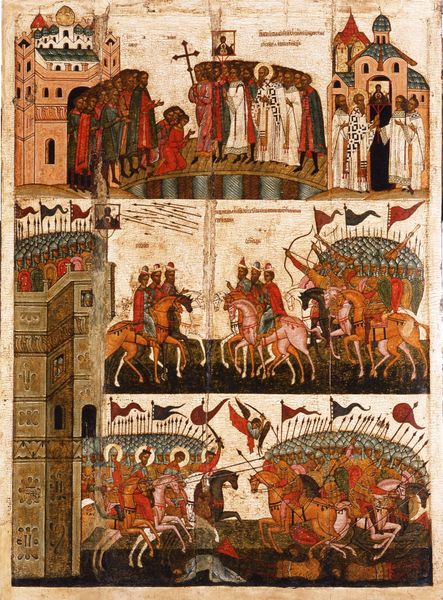
painting
#
medieval
#
narrative-art
#
painting
#
asian-art
#
landscape
#
figuration
#
islamic-art
#
history-painting
#
miniature
#
calligraphy
Copyright: Public domain
Ahmad Musa painted 'Bahram Gur kills the wolf' in the 14th century, likely in Persia. This work is more than just an illustration; it's a potent assertion of power and identity in a complex cultural landscape. The figure of Bahram Gur is central to understanding Persian identity, embodying the ideals of kingship, heroism, and Iranian cultural revival after the Mongol Ilkhanate rule. Musa's work reflects the elite culture of the time, where the arts were used to legitimize rulers. The scene is charged with tension; the wolf, often seen as a symbol of chaos, is being vanquished by the noble king, reinstating order. The painting evokes an emotional response; we are asked to align ourselves with the king and his triumph. The painting prompts us to reflect on how cultural narratives are constructed and how they shape our understanding of power, identity, and the emotional connection to our shared histories.
Comments
No comments
Be the first to comment and join the conversation on the ultimate creative platform.
